"AI Agents Are About to Eat Everything – and Most Companies Will Miss the Biggest Business Opportunity."
We're standing at the edge of a business revolution that makes the internet boom look like child's play.
AI agents aren't just another tech trend. They're digital employees working 24/7, never calling in sick, never asking for raises, and completing tasks at superhuman speed. While you read this, smart entrepreneurs are already building multi-million dollar businesses around them.
According to Statista, the market for AI is vast, amounting to around 244 billion U.S. dollars in 2025 and is expected to grow well beyond that to over 800 billion U.S. dollars by 2030.
The global AI agents market size was estimated at USD 5.40 billion in 2024 and is projected to reach USD 50.31 billion by 2030, growing at a CAGR of 45.8% from 2025 to 2030.
But the real shift is this: 78% of organizations now use AI in at least one business function. That's up from just 55% a year ago. The early movers aren't just experimenting anymore – they're scaling hard and fast.
- Market Explosion: The global AI agent market is growing at 45.8% annually, from $7.9 billion in 2025 to a projected $236 billion by 2034.
- Mass Adoption: 78% of organizations now use AI in at least one business function, jumping from 55% just one year prior.
- Enterprise Commitment: 87% said that seamless integration between different AI technologies is essential for their organization’s success.
- Production Scale: 52% of organizations have moved beyond pilots and are now deploying AI agents in full production.
AI is Already Adopt by Many Organization
Their customer servicing costs in consumer banking dropped by nearly 30%. Microsoft reports that AI agent usage has doubled year-over-year.
Sounds good, right? Not so fast.
The window for easy entry is closing. Fast.
Why? Because the infrastructure is ready. The models are powerful. And the first-mover advantage in AI agents is brutal.
Take Cursor, an AI-powered coding assistant. They hit $100 million in annual recurring revenue in just 12 months. Lovable, an AI app builder, processes 100,000 new projects daily and is raising funds at a $1.5 billion valuation.
These aren't outliers. They're the new normal.
The companies that understand this shift now – not next year, not when it's "mainstream" – will capture the lion's share of this market. The rest will be playing catch-up for the next decade.
What Makes AI Agents Different from Everything That Came Before
Traditional automation follows rules: "If this happens, do that." AI agents understand context, make decisions, and execute multi-step processes without human intervention.
A chatbot answers questions from a script. An AI agent researches your competitor's pricing, updates your database, schedules follow-up calls, and drafts personalized outreach emails – all while you sleep.
The difference is autonomy. Real autonomy.
Here's why this matters for your business: By 2028, Gartner predicts that 33% of enterprise software applications will include agentic AI, up from less than 1% in 2024. This shift will enable 15% of day-to-day work decisions to be made autonomously by AI agents. If you’re laying the groundwork now, prioritize modern data analytics and AI solutions that can feed, govern, and evaluate agents end-to-end.
That's not incremental improvement. That's a fundamental rewiring of how business gets done.
15+ AI Agent Business Ideas That Could Make You Rich in 2025
The opportunity is massive. But it's not about building the next ChatGPT. It's about solving specific, high-value problems with AI agents that can operate autonomously.
Here's your roadmap to the most promising AI agent business opportunities right now:
1. AI Sales Development Representative (SDR) Agent
-Agent.png)
Sales teams spend 70% of their time on administrative tasks. An AI SDR changes that completely. This agent can handle everything from lead research to personalized outreach, follow-ups, and calendar scheduling. It operates across multiple channels – email, LinkedIn, chat, phone – with the persistence of a machine and the intelligence of your best salesperson.
The revenue potential is big. Sales teams using AI automation can save up to 3 hours daily. That's 14+ hours per week. For a team of 10 salespeople, you're looking at 140 hours of recovered time weekly. At an average sales salary of $75,000, that's roughly $400,000 in annual value creation from time savings alone. And that doesn't count the increased conversion rates from better personalization and follow-up consistency.
Companies are already paying $50,000 to $150,000 annually for these systems. The market is hungry for solutions that can scale sales operations without scaling headcount.
2. AI-Powered Legal Contract Review Agent

According to Gartner, legal contract review will be $50 billion by 2027. An AI agent that can parse contracts, identify risk clauses, compare terms to previous deals, and suggest redlines changes everything. Law firms spend countless hours on contract review – work that's methodical, repetitive, and perfect for AI automation. An AI contract agent can review documents 10x faster than human lawyers while maintaining accuracy for standard clauses and common risk patterns.
The economics are compelling. Instead of billing $500-800 per hour for junior associate work, firms can offer AI-powered contract review at $100-200 per contract. Higher margins, faster turnaround, happier clients. For businesses, this means contract negotiations that take weeks can be compressed into days. Startup legal costs drop dramatically. Enterprise legal teams can handle 5x more contracts with the same headcount.
Development costs range from $120,000 to $350,000, but the market opportunity is massive. Every business signs contracts. Every law firm needs efficiency.
3. AI Customer Support Copilot
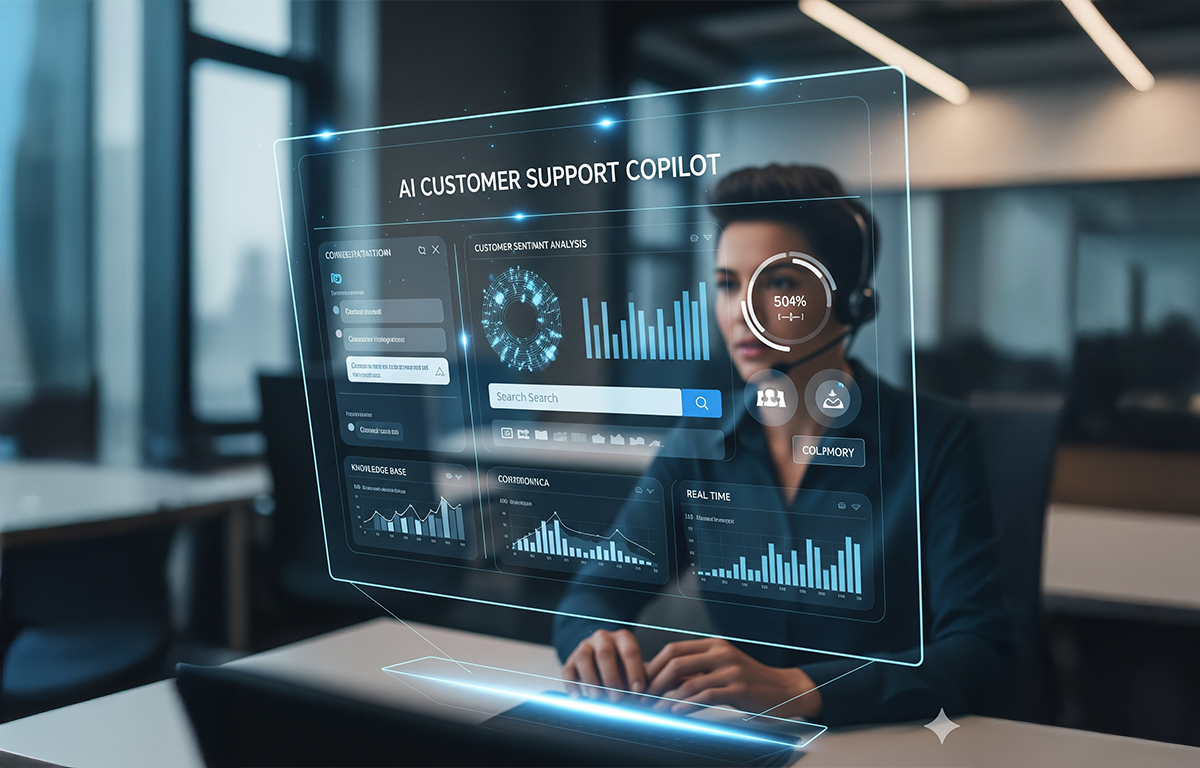
Customer support is drowning in volume. AI agents are the life preserver. These agents handle FAQs, ticket routing, sentiment analysis, and escalations across chat, email, and voice. They work 24/7, never get frustrated, and can manage multiple conversations simultaneously.
The impact is immediate and measurable. Companies report 50% cost reductions while maintaining high customer satisfaction scores. AI support agents resolve 80% of common issues without human intervention.
But here's the real opportunity: Most businesses still view customer support as a cost center. Smart companies are turning it into a revenue driver with AI agents that can upsell, cross-sell, and identify expansion opportunities during support interactions.
The development cost ranges from $30,000 to $50,000, making this one of the most accessible entry points. The monthly recurring revenue potential is substantial – businesses pay $500 to $2,000 monthly for sophisticated AI support systems.
4. AI-Powered Personal Health Coach

Healthcare is ripe for AI disruption, and personal health coaching represents a massive untapped opportunity. Traditional health coaching is expensive and doesn't scale. AI health coaches can provide personalized guidance to millions of users simultaneously, analyzing wearable data, health metrics, and behavioral patterns to deliver customized recommendations.
The market opportunity is enormous. The digital health market is projected to reach $659 billion by 2025. Personal health coaching represents a significant slice of that pie, with consumers increasingly willing to pay for personalized health guidance.
An AI health coach integrates with fitness trackers, analyzes sleep patterns, monitors nutrition, and provides real-time recommendations. It can identify health risks, suggest lifestyle changes, and even coordinate with healthcare providers.
The subscription model potential is exceptional. Users pay $50-200 monthly for premium health coaching. Scale that across thousands of users, and you're looking at substantial recurring revenue. Development costs range from $45,000 to $60,000, but the lifetime value of health-conscious consumers is significant.
5. AI-Driven Supply Chain Optimization Agent
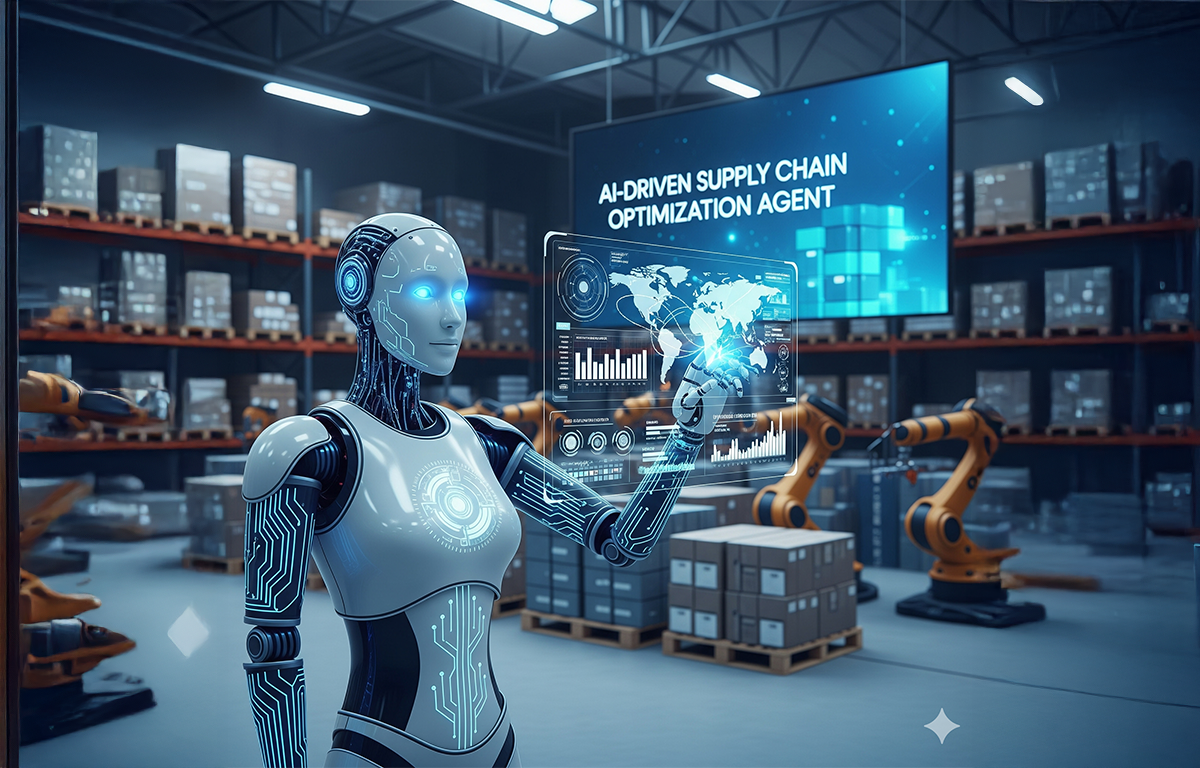
Supply chain management is a trillion-dollar problem that AI agents can solve with unprecedented precision.
The integration of AI supply chain agents with an ERP platform creates unprecedented operational efficiency, says Gabriel Cohen, VP of GTM at Klipboard. "When AI-driven insights connect directly with inventory, logistics, and financial systems in real-time, businesses benefit from optimized individual processes across their entire supply chain operations into a unified, intelligent system that responds automatically to market changes. These agents ingest real-time data from logistics providers, inventory systems, and demand forecasts to recommend routing optimizations, inventory adjustments, and supplier changes autonomously. They operate 24/7, processing thousands of variables that human managers simply cannot track.
The financial impact is massive. Companies using AI for supply chain optimization report cost savings of 15-20%. For a business with $100 million in annual supply chain costs, that's $15-20 million in savings.
Global supply chains are incredibly complex. Variables change by the hour – weather disruptions, port delays, demand fluctuations, geopolitical events. An AI agent can process all these inputs and optimize decisions in real-time.
The market opportunity is substantial. Supply chain software is a $24 billion market, growing at 11% annually. Businesses pay $300,000 to $800,000 for custom enterprise AI supply chain solutions.
6. AI Content Creation and Marketing Automation Agent
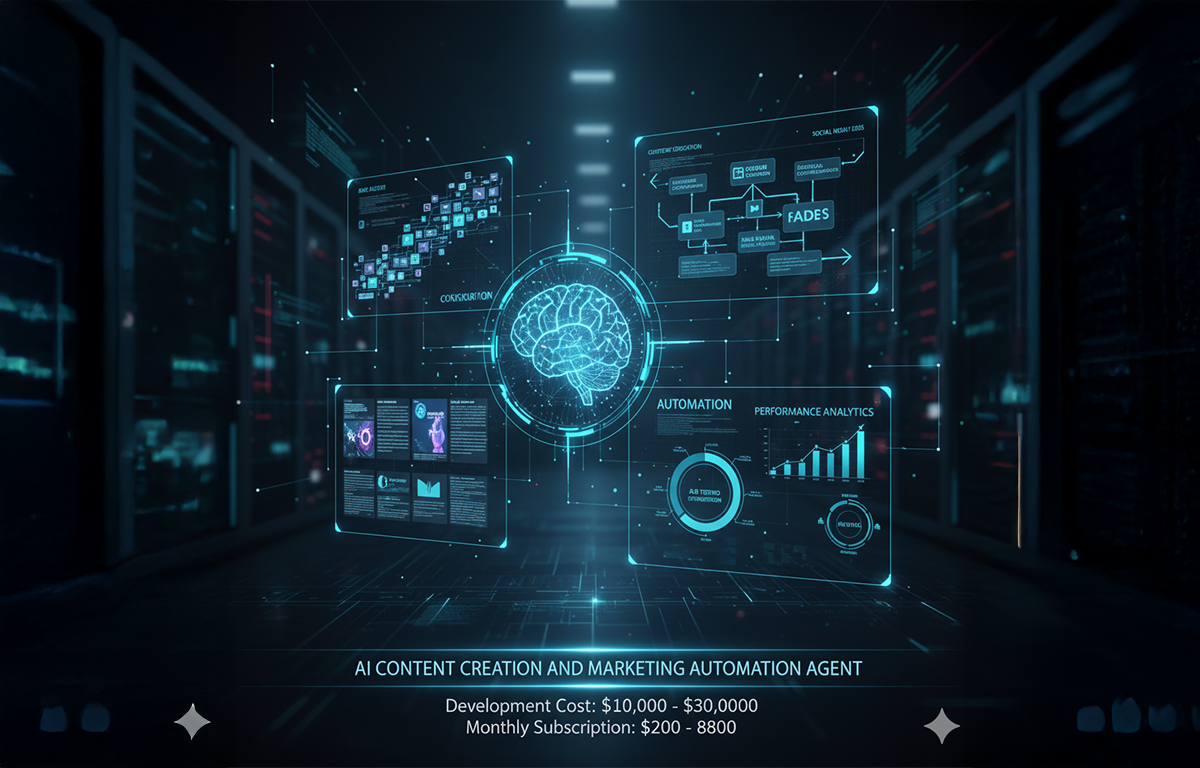
Content marketing consumes enormous resources. white label link building agency solutions can complement these efforts by boosting the visibility of AI-generated content through strategic backlinks. AI agents can transform this equation by generating blog posts, social media content, email campaigns, and video scripts at scale. But this isn’t about basic content generation; it’s about creating strategic, high-quality assets that also support SEO efforts, build backlinks, and strengthen long-term content authority. Advanced AI marketing agents analyze audience behavior, A/B test messaging, optimize for SEO, and adjust strategies based on performance data. Insights shared within a link building slack community can also help uncover common broken link opportunities others are encountering in the same niche, further enhancing backlink strategies.For businesses that want to accelerate this transformation even further, partnering with an experienced AI marketing agency can help unify these capabilities into a cohesive, high-impact growth engine.
The time savings are dramatic. Content teams that typically produce 10 pieces per month can generate 100+ with AI assistance. The quality remains high because the AI learns from top-performing content and applies those patterns consistently.
Companies pay $30,000 to $40,000 for comprehensive AI content solutions. The monthly recurring revenue model works well because businesses need fresh content continuously. The development costs are moderate – $30,000 to $50,000 – making this accessible for smaller development teams. The market opportunity is massive because every business needs content marketing.
7. AI-Powered Financial Planning and Analysis Agent

CFOs and financial teams spend countless hours on routine analysis, forecasting, and reporting. An AI financial agent automates these processes while providing deeper insights than traditional methods. These agents connect to accounting platforms, automatically generate P&L statements, reconcile bank feeds, identify anomalies, and create predictive forecasts.
The value proposition is clear. Financial teams can focus on strategic decisions instead of data compilation. Accuracy improves because AI doesn't make calculation errors or miss patterns in large datasets.
Small businesses get enterprise-level financial analysis without hiring expensive analysts. Large companies can process financial data from multiple divisions and create consolidated reports automatically.
Development costs range from $50,000 to $60,000, but businesses pay substantial monthly fees for sophisticated financial intelligence. This is a high-value market with strong customer retention.
8. AI Recruitment and Talent Screening Agent

Hiring is broken. Resume screening, candidate outreach, and initial interviews consume enormous time while often missing the best candidates. AI recruitment agents scan thousands of resumes instantly, identify qualified candidates, conduct initial screening interviews, and rank candidates by fit probability.
The efficiency gains are remarkable. HR teams can process 10x more candidates in the same time. Better matching leads to higher retention rates and improved job performance.
The market opportunity is substantial. Companies spend $4,000+ per hire on average. An AI agent that improves hire quality while reducing time-to-fill creates immediate value.
Businesses pay $20,000 to $35,000 for AI recruitment systems. The ROI is clear when you consider the cost of bad hires and extended vacancy periods.
9. AI E-commerce Growth and Optimization Agent

Online retail is intensely competitive. AI agents give e-commerce businesses superhuman optimization capabilities. These agents monitor site performance, run A/B tests, optimize pricing dynamically, recommend upsells and cross-sells, recover abandoned carts, and adjust marketing spend based on performance.
The impact on revenue is direct and measurable. Companies report 15-30% increases in conversion rates. For a business generating $1 million annually, that's $150,000 to $300,000 in additional revenue.
E-commerce businesses are data-rich environments perfect for AI optimization. Every click, view, and purchase provides data that the agent uses to improve performance continuously.
Development costs range from $30,000 to $50,000, but the revenue impact often pays for the investment within months. This is a market where results are immediately visible and quantifiable.
10. AI-Powered Healthcare Administrative Agent

Healthcare administration is drowning in paperwork. Insurance verification, appointment scheduling, billing, and compliance documentation consume resources that should focus on patient care. AI healthcare agents automate these processes, handle patient intake, verify insurance coverage, schedule appointments, process claims, and ensure regulatory compliance.
The cost savings are substantial. Healthcare organizations report reducing administrative costs by 30-40% with AI automation. For a practice with $5 million in annual revenue, that's $300,000 to $400,000 in savings.
Patient satisfaction improves because scheduling is faster, wait times decrease, and staff can focus on care instead of paperwork. The technology pays for itself quickly while improving the patient experience.
This is a regulated industry where compliance and accuracy are critical. But the financial rewards for successful implementations are exceptional.
11. AI Real Estate Deal Analysis and Management Agent

Real estate decisions involve complex analysis of market data, financial projections, and risk assessment. AI agents can process this information instantly and provide recommendations based on sophisticated models. These agents analyze property values, rental yields, market trends, financing options, and investment projections.
For real estate investors, this means faster deal analysis and better investment decisions. For agents, it means providing clients with data-driven insights that close more deals.
The real estate market is massive – trillions in annual transactions globally. Even small efficiency improvements translate to significant value creation.
Development costs range from $30,000 to $45,000, but real estate professionals pay premium prices for tools that improve deal flow and success rates.
12. AI Powered Educational Tutoring Agent

Education is personalizing, and AI tutoring agents are leading this transformation. These agents adapt to individual learning styles, adjust difficulty levels in real-time, provide instant feedback, and track progress across multiple subjects. They can tutor students 24/7 and scale to serve millions simultaneously.
The market opportunity is enormous. Parents spend billions on tutoring services. Educational institutions need tools to improve outcomes while controlling costs.
AI tutoring agents can provide personalized instruction at a fraction of traditional tutoring costs. Students get immediate help when they're stuck. Teachers get detailed analytics on student progress and problem areas.
The subscription model works well because education is ongoing. Families pay $50-200 monthly for premium AI tutoring services. Schools pay thousands annually per classroom for AI teaching assistants.
13. AI Cybersecurity Threat Detection Agent

Cybersecurity threats evolve constantly. AI agents provide the real-time analysis and response capabilities that traditional security tools cannot match. These agents monitor network traffic, analyze behavioral patterns, detect anomalies, predict attack vectors, and respond to threats autonomously.
The financial stakes are enormous. The average data breach costs $4.45 million. An AI security agent that prevents even one major breach pays for itself many times over.
Businesses are increasingly willing to pay premium prices for advanced cybersecurity. AI security solutions command high prices because the cost of failure is catastrophic.
This is a high-expertise market, but the revenue potential is exceptional. Enterprise cybersecurity budgets are growing rapidly as threats become more sophisticated.
14. AI-Driven Inventory Management Agent
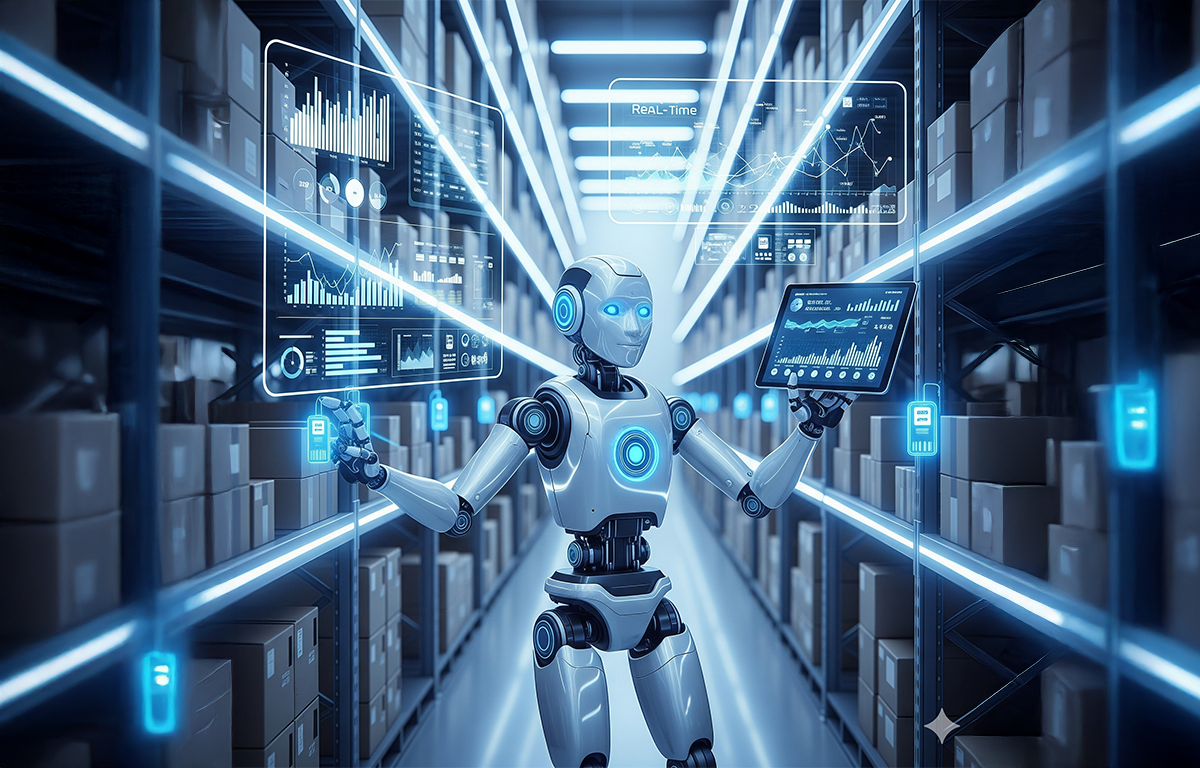
Inventory management is a multi-trillion dollar challenge across retail, manufacturing, and distribution. Too much inventory ties up capital. Too little inventory loses sales. AI inventory agents analyze sales patterns, seasonal trends, supplier lead times, and market conditions to optimize inventory levels automatically.
The financial impact is immediate. Companies report inventory cost reductions of 20-30% while improving availability. For a business with $10 million in inventory, that's $2-3 million in capital efficiency.
This is a problem every business with inventory faces. The market opportunity spans industries and company sizes. Small retailers and large manufacturers both need inventory optimization.
15. AI Project Management Agent

Project management involves coordinating multiple people, deadlines, and deliverables. AI agents can handle this coordination more effectively than traditional project management tools. These agents track progress, identify bottlenecks, predict delays, reallocate resources, and communicate updates to stakeholders automatically.
Project failures cost businesses billions annually. Most failures result from poor coordination and communication – exactly what AI agents excel at managing.
Teams using AI project management report 40-60% improvements in on-time delivery. For businesses where time-to-market matters, this represents significant competitive advantage.
The market opportunity is substantial because every business runs projects. From software development to marketing campaigns to construction projects, AI coordination agents can improve outcomes.
How to Choose Your AI Agent?
Not all AI agent opportunities are created equal. Here's your decision framework:
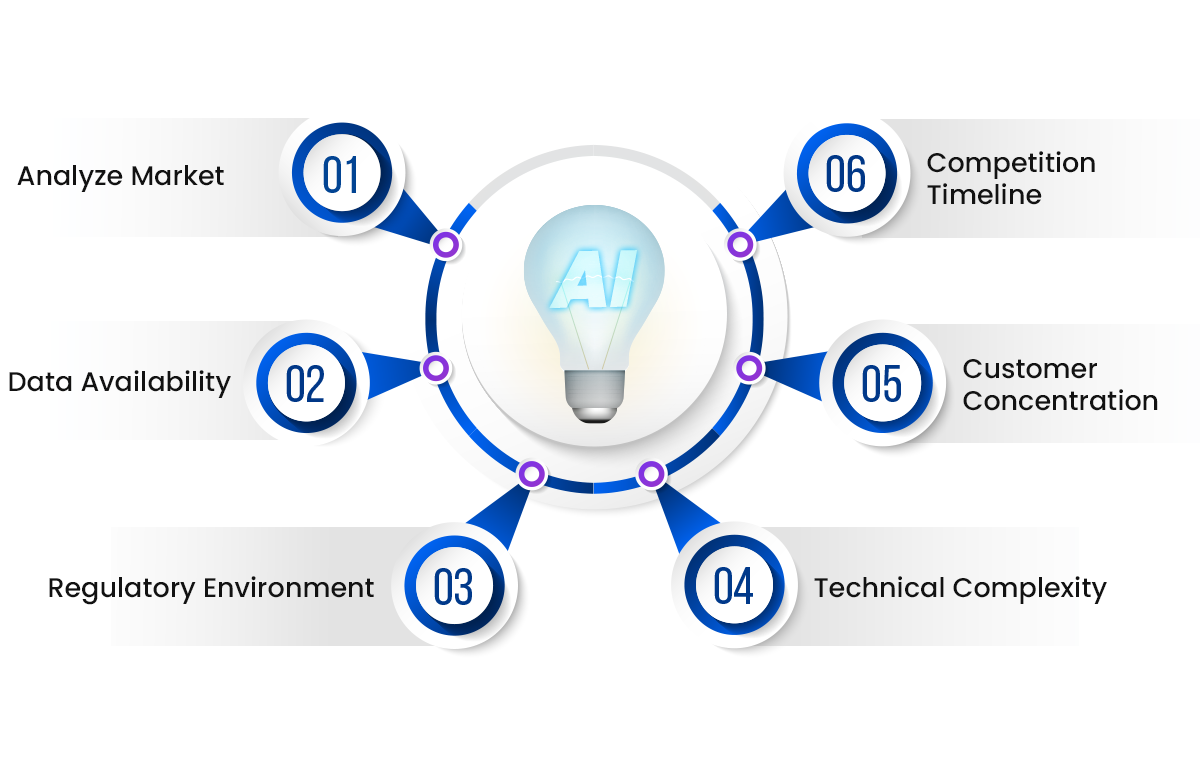
- Analyze Market: Focus on problems that cost businesses significant money or time. Small inefficiencies don't justify AI agent investments.
- Data Availability: AI agents need data to learn and improve. Choose opportunities where you can access rich datasets that improve agent performance over time.
- Regulatory Environment: Heavily regulated industries move more slowly but pay premium prices for compliance-focused solutions. Unregulated markets move faster, but competition is more intense.
- Technical Complexity: Higher complexity creates bigger moats but requires more expertise and capital. Simple use cases are easier to build but harder to defend.
- Customer Concentration: Selling to 1,000 small businesses is different from selling to 10 enterprises. Enterprise sales take longer but generate more revenue per customer.
- Competition Timeline: Markets with established players are harder to enter. Emerging use cases offer more opportunity but require market education.
The Revenue Models That Actually Work
AI agent businesses aren't like traditional software companies. The economics are different, and the revenue models need to reflect that reality.
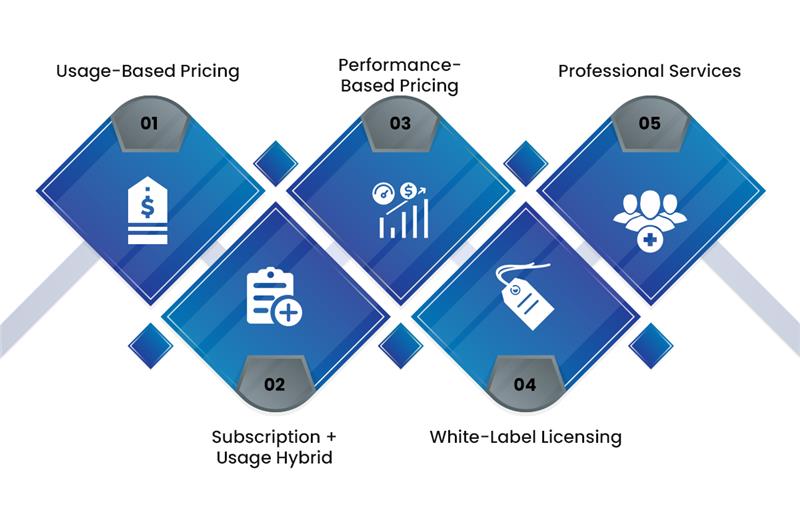
- Usage-Based Pricing: Many AI agents work best with usage-based pricing because their value scales with utilization. Companies pay for API calls, processed documents, or analyzed transactions. This aligns pricing with value creation.
- Subscription + Usage Hybrid: Base subscription for platform access plus usage fees for heavy processing. This provides predictable revenue while capturing value from high-usage customers.
- Performance-Based Pricing: For agents that generate measurable business outcomes – like sales or cost savings – performance-based pricing can command premium rates. Customers pay based on results achieved.
- White-Label Licensing: Instead of selling directly to end users, license your AI agent to other companies that resell it to their customers. This can accelerate distribution but requires different support models.
- Professional Services: AI agents often require customization and integration work. Professional services can represent 30-50% of total project value, improving unit economics significantly.
The Technical Reality Check
Building successful AI agents requires more than calling OpenAI's API. Here's what actually matters:
- Data Pipeline Architecture: Your agent is only as good as the data it processes. Building robust data pipelines that clean, transform, and update information reliably is critical. This is often the hardest technical challenge.
- Integration Complexity: AI agents need to work with existing business systems – CRMs, ERPs, communication tools, databases. These integrations are complex and often require custom development work.
- Performance and Reliability: AI agents make mistakes. Building systems that handle errors gracefully, escalate appropriately, and maintain performance under load requires significant engineering expertise.
- Security and Compliance: Enterprise customers demand security certifications, audit trails, and compliance with regulations like GDPR, HIPAA, and SOC 2. These requirements add complexity and cost but are non-negotiable.
- Model Management: AI models drift over time. Building systems that monitor performance, retrain models, and deploy updates without downtime requires MLOps expertise.
The companies that nail these technical fundamentals build sustainable businesses. Those that skip them create impressive demos that don't scale.
Why Most AI Agent Startups Will Fail And How to Avoid Their Mistakes?
The AI agent opportunity is real, but most companies pursuing it will fail. Here's why:
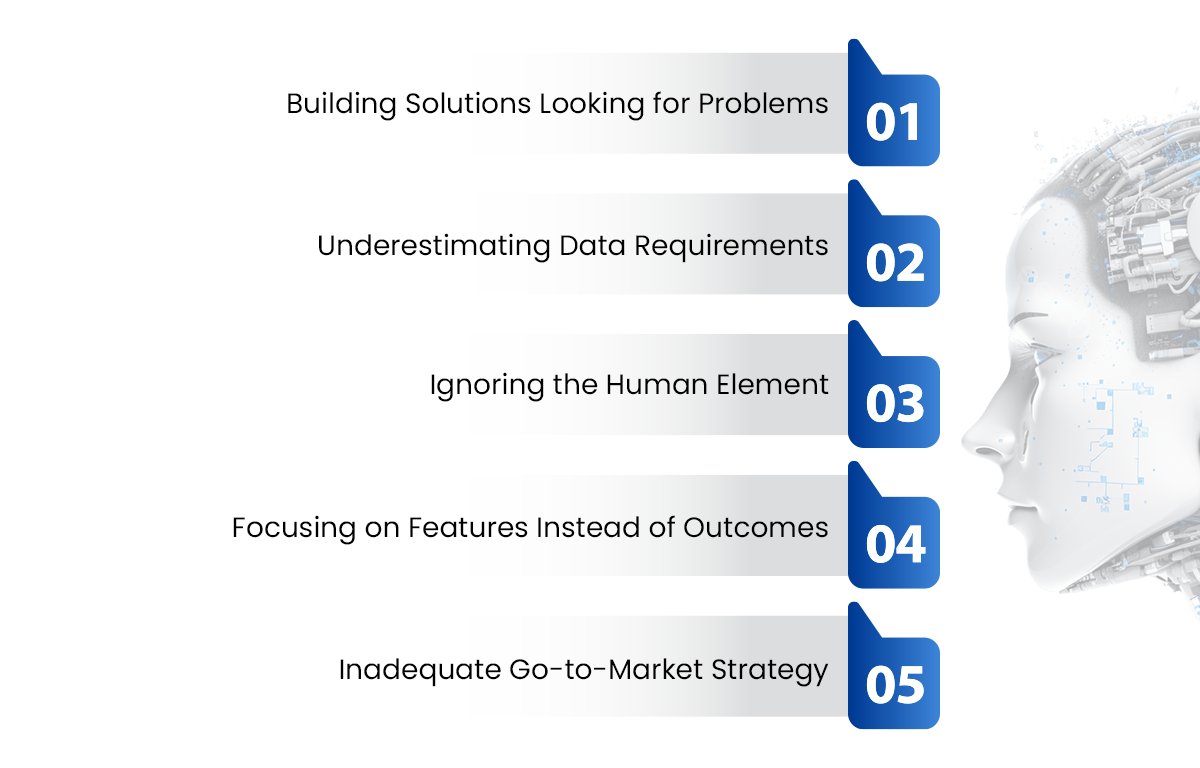
- Building Solutions Looking for Problems: Many teams build cool AI technology then try to find customers who want it. This approach rarely works. Start with customer problems and build AI agents to solve that.
- Underestimating Data Requirements: AI agents need lots of high-quality data to perform well. Teams that assume they can build effective agents with limited datasets discover this reality too late.
- Ignoring the Human Element: AI agents don't replace humans entirely – they augment them. Companies that design agents without considering human workflows create tools that nobody wants to use.
- Focusing on Features Instead of Outcomes: Customers don't buy AI agents because they're impressive technically. They buy them because they solve expensive problems or create valuable opportunities.
- Inadequate Go-to-Market Strategy: AI agents often require education and change management. Companies that expect customers to self-discover and self-implement their solutions struggle with adoption.
The Competitive Landscape
The AI agent market is moving from experimentation to competition. Understanding the competitive landscape helps you position effectively.
- Big Tech Platforms: Microsoft, Google, Amazon, and OpenAI are building foundational AI agent platforms. They'll dominate infrastructure and general-purpose agents. But they're not building vertical-specific solutions – that's where opportunities exist.
- Enterprise Software Giants: Salesforce, ServiceNow, and Oracle are integrating AI agents into their existing platforms. This creates opportunities for specialized agents that integrate with these systems or serve markets these companies ignore.
- AI-First Startups: Companies like Cursor, Lovable, and Sierra are building agent-first products from the ground up. They're moving fast and capturing market share in specific verticals.
- System Integrators: Consulting firms and systems integrators are building custom AI agents for enterprise clients. This represents both competition and partnership opportunities.
The competitive dynamics are still forming. The companies that establish strong positions in specific verticals over the next 12-18 months will have significant advantages as the market matures.
The Capital Requirements Are Lower Than You Think
One of the biggest surprises in AI agent businesses is how capital-efficient they can be compared to traditional software companies.
- Development Costs: Basic AI agents can be built for $20,000 to $60,000. Even sophisticated enterprise agents cost $250,000 to $800,000 – less than many traditional enterprise software projects.
- Infrastructure Costs: Cloud-based AI infrastructure scales efficiently. You pay for what you use, and costs decrease as models become more efficient. Initial infrastructure costs are typically under $5,000 monthly for most projects.
- Go-to-Market Efficiency: AI agents that solve clear problems often sell themselves. The value proposition is obvious, and customers can see results quickly. This can reduce sales cycles and customer acquisition costs.
- Revenue Ramp: Successful AI agent companies report faster revenue ramps than traditional SaaS businesses. When customers see immediate value, they expand usage quickly.
This doesn't mean AI agent businesses are easy or cheap to build. But the capital requirements are within reach for more entrepreneurs than most people realize.
Curious about the real cost of building an AI agent for your business?
Our team at Zenesys Solutions can provide a clear, tailored estimate based on your specific needs and goals.
Consult with Our ExpertsThe Global Opportunity Is Massive, But Geographic Matters
The AI agent opportunity isn't just happening in Silicon Valley. It's global, but different regions are at different stages of adoption.
- North America: Leading in AI agent adoption and investment. US companies represent 75% of AI agent developers. This market is competitive, but the largest in terms of revenue potential.
- Asia-Pacific: Fastest growing region with 49.5% CAGR. Countries like China, India, and Japan are investing heavily in AI infrastructure. This represents an enormous long-term opportunity.
- Europe: More cautious adoption due to regulatory focus, but businesses pay premium prices for compliance-focused solutions. GDPR and AI Act create barriers but also defensible positions.
- Emerging Markets: Later adopters but potentially massive scale opportunities. Mobile-first AI agents could leapfrog traditional business software in developing economies.
The key insight: Different regions have different AI agent needs. Solutions that work in Silicon Valley tech companies may not fit European manufacturers or Asian retailers. Geographic specialization can create competitive advantages.
The Skills You Need?
Most people assume AI agent businesses require deep machine learning expertise. That's only partly true.
- Domain Expertise: Understanding the specific industry or business function you're targeting is more valuable than AI expertise alone. A legal professional who learns AI can build better legal agents than an AI researcher who learns law.
- Product Management: Successful AI agents require excellent product thinking. Understanding user workflows, pain points, and success metrics matters more than model architecture.
- Integration Skills: Most AI agent value comes from seamless integration with existing business systems. API development, database skills, and systems integration expertise are critical.
- Customer Development: AI agents often require customer education and change management. Sales and customer success skills are essential for building sustainable businesses.
- Business Model Innovation: AI agent economics are different from traditional software. Understanding pricing, unit economics, and value capture requires business strategy skills.
The most successful AI agent companies combine domain expertise with technical capability and strong business execution. Pure technical teams often struggle with customer development and market positioning.
The Action Plan
Your 3-Month Roadmap to Building an AI Agent Business
Weeks 1-2: Market Research
- Identify 3-5 specific business problems you understand well
- Interview 20+ potential customers about their pain points and current solutions
- Research existing competitors and their approaches
- Estimate market size and willingness to pay
Weeks 3-4: Technical Feasibility
- Experiment with AI agent development platforms
- Build simple prototypes for your top 2 opportunities
- Test data availability and quality for your target use cases
- Estimate development costs and timeline
Weeks 5-8: Business Model Development
- Define your target customer segments and use cases
- Develop pricing models and revenue projections
- Create go-to-market strategy and customer acquisition plan
- Build financial models and funding requirements
Weeks 9-12: MVP Development
- Build minimum viable AI agent for your best opportunity
- Test with 5-10 friendly customers and gather feedback
- Refine product based on real user behavior
- Prepare for first customer pilots or sales conversations
This timeline is aggressive but realistic. The AI agent opportunity won't wait for perfect preparation. The companies that start building now will have significant advantages over those who wait for more clarity.
Read this article if you want to create a multilingual AI agent:
Our team at Zenesys Solutions shows you how to build AI agents that understand and communicate in multiple languages for your audience.
Read the ArticleConclusion
The companies that recognize this shift and act on it will capture disproportionate value. But this isn't about jumping blindly into AI hype. It's about understanding a fundamental shift in how work gets done and positioning your business to benefit from that change.
The AI agent opportunity is real. The market is massive. The technology is ready. The capital requirements are manageable. And the competitive landscape is still forming. The question isn't whether AI agents will transform business. They already are.
The question is whether you'll build the solutions that capture that transformation – or watch others do it while you're still deciding if it's real. The next decade belongs to the companies that understand this moment and act on it. The AI agent revolution isn't coming.
It's here. And it's time to pick your side. The businesses being built today will define the AI agent landscape for the next 20 years. Make sure you're building one of them.


.webp?lang=en-US&ext=.webp)

.webp?lang=en-US&ext=.webp)

